 Lets take a look at what Christmas is like where it all began. Lets look at Christmas in Bethlehem. We'll start off with the procession of the Latin Patriarch through the streets of Bethlehem as he blesses the people along the route to the Basilica of the Nativity and then to Mass at St. Catherine's Church, the parish Church in Bethlehem. Enjoy!
Lets take a look at what Christmas is like where it all began. Lets look at Christmas in Bethlehem. We'll start off with the procession of the Latin Patriarch through the streets of Bethlehem as he blesses the people along the route to the Basilica of the Nativity and then to Mass at St. Catherine's Church, the parish Church in Bethlehem. Enjoy!
"It hasn't really set in that I am here in Bethlehem where everything happened so many thousand years ago," said an overwhelmed Matt Lafontaine, a 21-year-old university student from Plymouth, Minnesota. "It's really exciting. It's just starting to set in. It's surreal."
In an annual tradition, Bethlehem's residents enacted Christmas rituals that seem out of place in the Middle East. Palestinian scouts marched through the streets, some wearing kilts and pompom-topped berets, playing drums and bagpipes. They passed inflatable red-suited Santas, looking forlorn in the West Bank sunshine.
 BETHLEHEM, West Bank (AP) -- Thousands of people joined by marching bands, clergymen in magenta skullcaps and children dressed as Santa Claus celebrated Christmas Eve in the center of Bethlehem Sunday, doing their best to dispel the gloom hovering over Jesus' traditional birthplace.
BETHLEHEM, West Bank (AP) -- Thousands of people joined by marching bands, clergymen in magenta skullcaps and children dressed as Santa Claus celebrated Christmas Eve in the center of Bethlehem Sunday, doing their best to dispel the gloom hovering over Jesus' traditional birthplace.
Most were local residents or Christian Arabs from neighboring Israel with a sprinkling of foreign tourists.
Other scenes of this Bethlehem Christmas, however, could be found nowhere else. To get to town, Latin Patriarch Michel Sabbah, the Roman Catholic Church's highest official in the Holy Land, rode in his motorcade through a huge steel gate in the Israeli separation barrier that separates Jerusalem from Bethlehem.
Israel says it built the barrier to prevent Palestinian suicide bombers from reaching Israeli population centers. Palestinians view the structure, which dips into parts of the West Bank, as a land grab.
The robed clergyman was led into Palestinian-controlled territory by a formal escort of five Israeli policemen mounted on horses. Two Israeli Border Police troops closed the gate behind him.
"I congratulate our people, especially our Christian brothers, not only here but all around the world for Christmas and the New Year, God bless us," he said. He called his meeting with Olmert "a good start."
Sabbah, wearing a flowing gold and burgundy robe, led a procession into St. Catherine's Church, adjacent to the traditional birthplace of Jesus for midnight Mass.
Hundreds of worshippers packed the cavernous church for the service, as clergymen chanted in Latin amid the sound of bells and organ music. Abbas attended the ceremony, escorted by a large security detail to a front row seat. Sabbah offered him a blessing.
In his homily, Sabbah asked all political leaders and adversaries, including Israeli troops and those "who are classified as extremists and terrorists " to "examine their conscience" to end the bloodshed.
In his homily at midnight Mass in Bethlehem, Sabbah appealed to Palestinians to halt their recent "fratricidal struggles" and called for an end to Israeli-Palestinian bloodshed as well.
"The conflict here has lasted too long," he said. "It is high time that the leaders who have our destinies in their hands in this land -- specifically, the Palestinian and Israeli leaders as well as those of the international community -- it is time for all of them to take new measures that will bring an end to the long phase of death in our history and lead us into a new phase in the history of this Holy Land."
Palestinian President Mahmoud Abbas, a Muslim, joined the celebrations, expressing hope that his meeting with Israeli Prime Minister Ehud Olmert Saturday would lead to a peace breakthrough.
Earlier, Sabbah sounded similar themes in his annual Christmas address at his Jerusalem office before departing for Bethlehem
"God wants us all to be peacemakers. He wants every believer who has faith in God -- Jewish, Muslim or Christian -- to work to make peace," Sabbah said. "Our leaders so far have only made war, they haven't made peace."
Bethlehem's tourist industry has been hit hard by the last six years of Israeli-Palestinian violence and by the barrier, which Israel began building in 2002, but also by internal Palestinian friction.
This Christmas is the first under a Palestinian Authority governed by the militant Islamic group Hamas. To alleviate Christian fears ahead of the holiday, Hamas promised that it would send $50,000 to decorate Manger Square in the center of town for the holiday. It was not clear if the money ever arrived.
Even so, Manger Square and the surrounding buildings were decorated in neon lights. Bands performed on a stage, and a large screen beamed images of Palestinian flags and officials.
Standing outside his empty souvenir shop, George Baboul said this is the "worst Christmas" he has seen in more than 30 years. Baboul's shop, the "Bethlehem Star Store," is in a prime location, at the side of the Church of the Nativity, but he said there is no business.
"No tourists are coming," said Baboul, 72, who opened the shop in 1967. "I don't know what's the reason for that. There are no problems, Bethlehem is safe, but tourists are afraid to come."
Bethlehem's mayor, Victor Batarseh, said his city would celebrate Christmas despite the hardship.
"With all this oppression, this economic stress, physical stress, psychological stress, we are defying all these obstacles and we are celebrating Christmas so that we'll put joy into the faces of our children, joy to the citizens of Bethlehem," he said.
By evening, Manger Square was bustling with thousands of people. The small contingent of foreign tourists in Bethlehem this year included a Polish choir group and a handful of pilgrims from South Korea who gathered to sing carols in one corner of the square, interrupted briefly by the loud call to prayer from a nearby mosque.
"It's exciting. I can feel that Jesus was here," said Jae Hwan Kim, 29, of Seoul.
Israel's Tourism Ministry forecast 18,000 tourists would visit Bethlehem this year, up from 16,000 last year, but far below the tens of thousands of people who thronged Manger Square at the height of peacemaking in the 1990s.
"It's a lot more positive than I thought," said Frank Baumann, 59, of Squamish, Canada, who came with his wife and three daughters. "It's very festive and everybody is in a good mood. There's certainly no sense of any violence."
The only large foreign contingent in Manger Square was made up of around 200 Filipino Christians who work in Israel.
With every Christmas, the Holy Land's Christian community shrinks a bit. The native Palestinian Christian population has dipped below 2 percent of the West Bank, Gaza Strip and Arab East Jerusalem, down from at least 15 percent in 1950, by some estimates. Bethlehem is now less than 20 percent Christian.
In Gaza, where 3,000 Christians live among around 1.4 million Muslims, the head of the tiny Roman Catholic community, Father Manuel Musallem, canceled Midnight Mass celebration, citing the recent Palestinian infighting between Fatah and Hamas.
"The children told me Santa Claus won't come this year because it's too dangerous," he said.

By Jonathan Saul Mon Dec 25, 8:21 AM ET
BETHLEHEM, West Bank (Reuters) - Hundreds of pilgrims celebrated Christmas in Bethlehem on Monday but Palestinian residents said there was little cause for holiday cheer in the town Christians revere as the birthplace of Jesus.Palestinian President Mahmoud Abbas attended the traditional midnight mass along with a few hundred worshippers in the Church of the Nativity, and morning saw Manger Square awash with the soft sounds of hymns and church bells.
"We need peace even more now," said Hanna abu Eita, a 60-year-old Christian. "We only want a chance to live."
Local officials said some 8,000 to 10,000 pilgrims would visit Bethlehem this Christmas, compared with 2,000 last year.
But residents and merchants said the estimate appeared high and that Israeli Arabs, rather than overseas pilgrims, made up the bulk of visitors.
Israel's army eased travel restrictions to allow foreigners as well as Israeli and Palestinian Christians from the West Bank and Gaza to visit the town over Christmas.

But residents said military checkpoints and the Israeli barrier cutting into land that Palestinians want for a state were constant reminders they had little cause for celebration.
A concrete wall, with an iron gate, blocks off the entrance to Bethlehem along the road from nearby Jerusalem.
Israel says the barrier, a mix of wire fencing and concrete walls, stops suicide bombers from reaching its cities.
Hundreds of pilgrims gathered in Manger Square, decorated with colored lights and Christmas trees. Worshippers also flocked to the grotto of the Church of the Nativity.
But six years after the start of a Palestinian uprising, and nearly a year after election victory by the Islamic militant group Hamas, hardship across the occupied West Bank has deepened.
Bethlehem's own Palestinian Christian community is dwindling under pressure from the conflict with Israel and Western economic sanctions against the Hamas-led Palestinian government.
"The Christmas quiet and lights are an illusion," said Khaled Bandak, 39, a Christian hotel owner in the town.
"People do not have money to spend. Christians are leaving because the situation is so dire. It is a gloomy atmosphere," he said. "You see smiling faces, but inside we are not smiling."
More than 3,000 Christians, about 10 percent of Bethlehem's Christian population, have left the town since 2000, according to the United Nations.
"It is so beautiful in Bethlehem at Christmas, compared to the rest of the year," said Charles Radloss, a 78-year-old American attending midnight mass. "People should be able to be jubilant all the time, especially in the Holy Land."



At the mass, the Roman Catholic Church's leader in the Holy Land, Latin Patriarch Michel Sabbah, a Palestinian, called for an end to fighting between Palestinian factions and for the revival of long-stalled Israeli-Palestinian peacemaking.
Tourism, the lifeblood of Bethlehem's economy, has fallen sharply over the past six years. The average number of visitors has fallen to as low as 20,000 a month from about 100,000 before the Palestinian uprising. Unemployment in the town is estimated at about 65 percent.
Western sanctions on the Hamas-led Palestinian Authority have hit government employees, many of whom have not been paid for months. The West wants Hamas, sworn to Israel's destruction, to change its stance as the main condition for renewing aid.
(Additional reporting by Said Ayyad)
![[Unam Sanctam]](https://blogger.googleusercontent.com/img/b/R29vZ2xl/AVvXsEiymQ2adTjpZ1ABhPBbBBquiPCxeQrc4Jy_97vOikT0wGQeJleriiXQy6ebnb0jrYe-TfvcK77txStB4aIwVAdD41ZdMkVfNtFGC0JX6LBV9B8mfeRZaIAM7Sj-011ag3DiKQzv/s1600/headerdivinemercy.jpg)

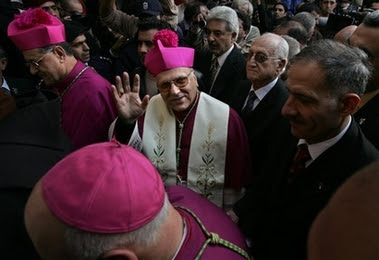










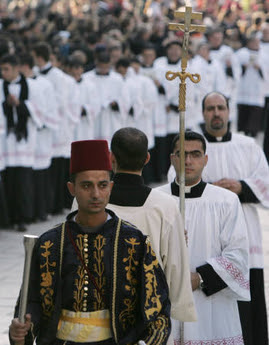
















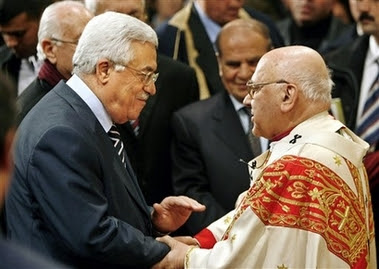



















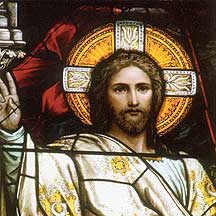







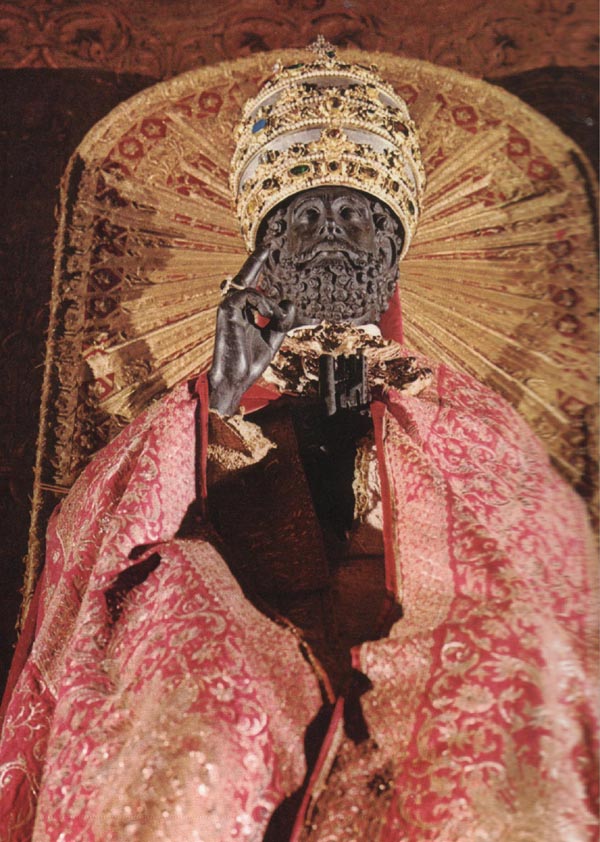
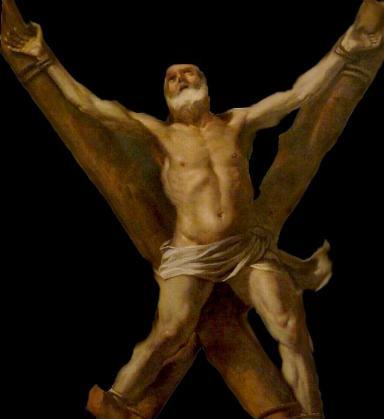




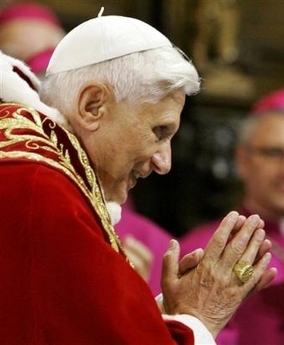






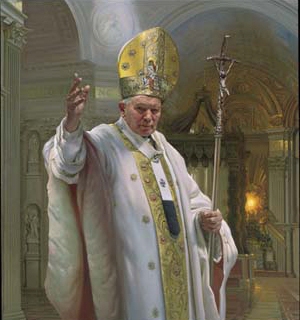
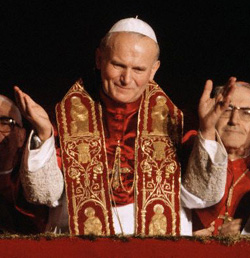
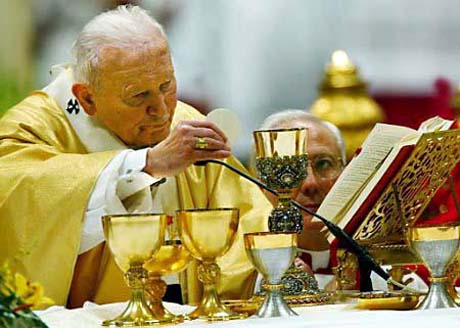







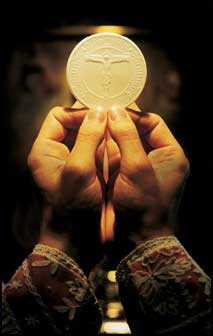
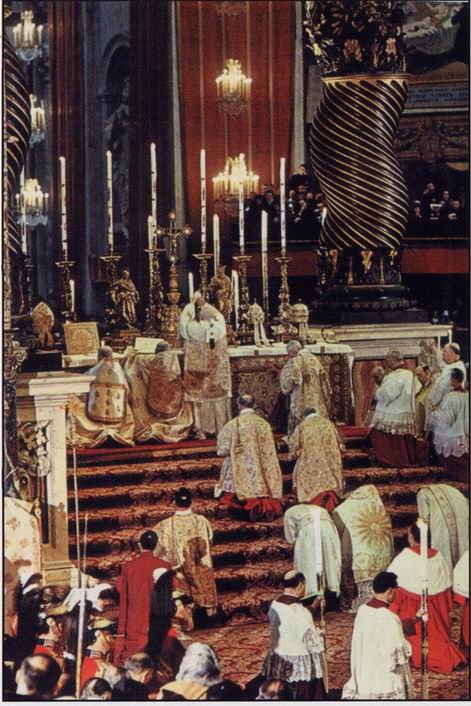

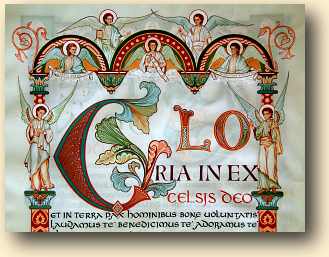

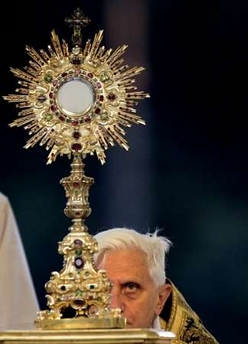


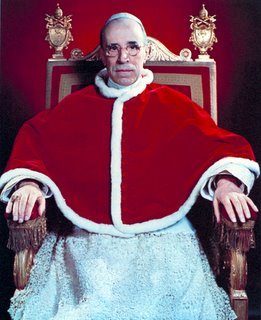




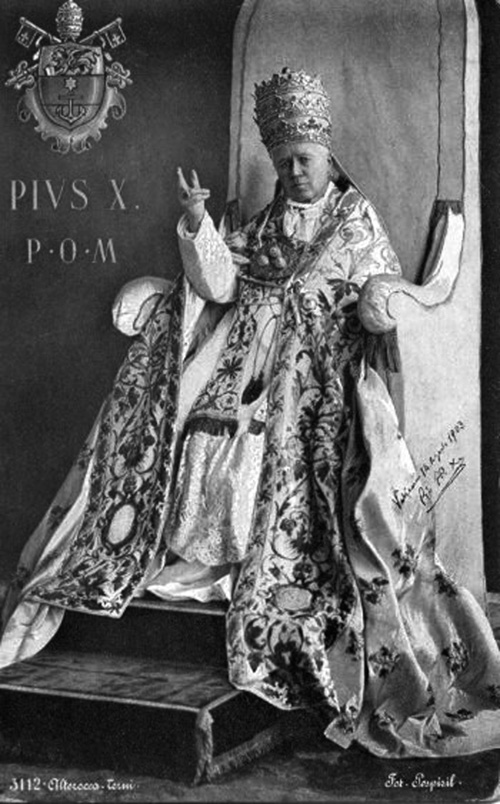



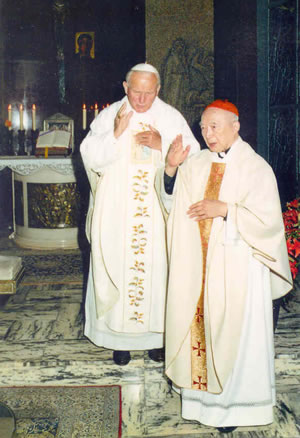






No comments:
Post a Comment